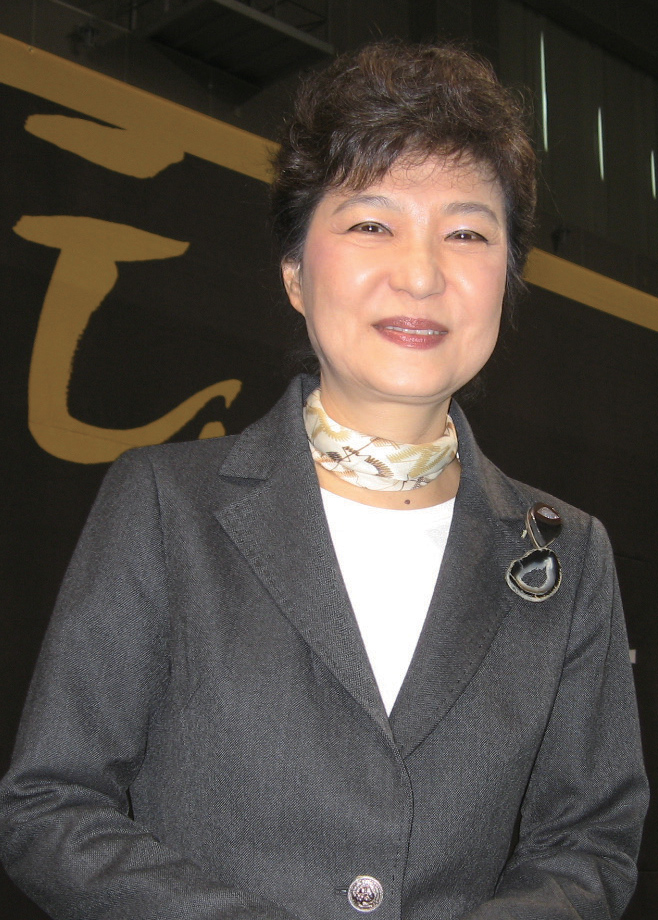'Ahn Fever' Hits Korean Politics
SNU professor beats ex-GNP leader Park in the latest poll


With general and presidential elections slated for next year, the so-called Ahn Cheol-soo syndrome has roiled the Korean political circles. Even though Prof. Ahn of Seoul National University and founder and biggest shareholder of Ahnlab Inc. has yet to officially throw his hat into the ring, he leads in the latest polls of potential presidential candidates, surpassing long-time favorite and former Grand National Party (GNP) leader Park Geun-hye in a simulated showdown.
The latest Maeil Economic Daily-MBN poll, conducted by the survey research organization Hangil Research from Nov. 18-19 on 1,000 adults across the nation, showed that Ahn garnered 47.1 percent of support against Park's 39.9 percent in the simulated Ahn vs. Park showdown.
In particular, Ahn's figure represents an 11.5 percentage-point rise over a similar snap poll conducted in September when he enjoyed the support of 35.6 percent. Hangil Research President Hong Hyung-shik said the rise in Ahn's support rate was attributable to his recent announcement that he will donate half of his stake in Ahnlab to society. The survey outcomes show that Ahn may have an impact on the upcoming general and presidential elections regardless of whether or not he will run, Hong added.
The poll also indicates that "Ahn fever" is growing hotter as time goes by, unlike the ruling party GNP's forecast that the hype would subside after the Oct. 26 by-elections were over.
In a snap poll by local news agency Newsis on Sept. 6, Ahn got the support of 42.4 percent of respondents, edging GNP leader Park by 1.9 percent. In another poll by local broadcaster CBS, Ahn was the pick of 43.2 percent of respondents, taking a 1.6 percent lead over Park.
On Nov. 14, Ahn announced a bombshell plan to donate half of his Ahnlab stock holdings, which was estimated at roughly 150 billion won. He chose an email message in announcing the news to his Ahnlab executives and staffs. The move was construed as a step in the direction of his running for president, many political analysts said.
Ahn said, "Our society, which has had unprecedented growth and development after overcoming the ashes of war and the division of the Korean Peninsula, is now faced with great hardships of late as a healthy middle-class is near collapse, and the younger generations are falling into frustration instead of rising to their dreams and visions."
As to the reason for his donation, he said, "It is important to console frustrated youth and take steps for them, but it is the most necessary and dearest virtue to translate into practice a little thing for communal co-prosperity."
"Ahn fever" began to spread after news broke that he was considering running for the Seoul mayoral position, which had been vacated by Mayor Oh Se-hoon's resignation after his failure to win a referendum over a free school lunch program.
Ahn gave up his bid to become Seoul mayor, and instead announced his support for progressive liberal Park Won-soon, who finally won the by-election for Seoul Mayor as an independent. Park got 53.4 percent of the votes cast, defeating Na Kyung-won on the GNP ticket, who received 46.2 percent. The difference in the Park vs. Na race was Park's winning more votes from constituents aged from their 20s to 40s who have vented against what they call the ruling party's policies favoring the rich "haves."
Ahn and Park's latest appearances have dealt a severe blow to the political establishment, ruling and opposition parties alike.
Ahn, now a dean of Seoul National University's Graduate School of Convergence Science & Technology, was once a doctor and later became a businessman who developed cutting-edge anti-virus programs. His company, Ahn Lab, is one of the most successful software companies in Korea.
Ahn's public support has mounted particularly among youth as he has participated in several rounds of talk shows, dubbed "Youth Concerts," that have listened to youth's agonies and frustrations, along with liberal doctor Park Kyung-chul and others across the nation. Ahn said he has 300 mentors from a wide range of areas.
GNP and even the opposition party have suffered a setback from "Ahn fever." They have begun to push back, charting strategies to woo voters, particularly from the younger sector, with steps to promote public welfare and raise employment for youth amid worries over political circles' populist trends.
Ahn has indicated his intention to offer his support to any party except the ruling GNP.
As her apparent efforts to fend off Ahn's fever, former GNP leader Park has shifted in high gear her bid to win the minds of people, particularly from the so-called 2040 generation people.
The Democratic Party and other opposition parties are striving to consolidate into one party, gearing up to field a united candidate in the upcoming presidential election slated for late next year.
In the latest development, three minor liberal parties on Nov. 20 agreed to merge and created a unified party, scrambling for their bids for the general and presidential election. The deal was struck by Democratic Party leader Rep. Lee Jung Hee, People Participation Party Leader Rhu Si-min and Roh Hoi-chan, who co-leads the minority group, New United Progress Alliance. nw
Prof. Ahn Cheol-soo of Seoul National University and founder and biggest shareholder of Ahnlab Inc.
Photo on courtesy of Ahnlab Inc.
Former Grand National Party (GNP) leader Park Geun-hye
Photo by NewsWorld
3Fl, 292-47, Shindang 6-dong, Chung-gu, Seoul, Korea 100-456
Tel : 82-2-2235-6114 / Fax : 82-2-2235-0799